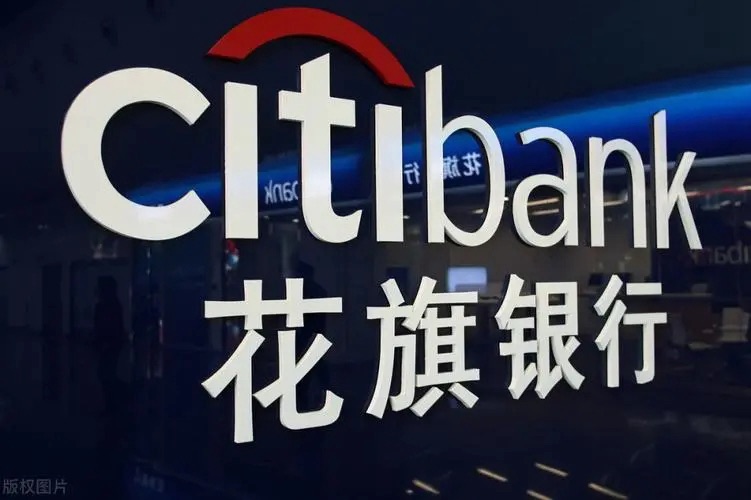Shanghai, September 5, 2025 – China UnionPay, the state-owned financial services corporation and China’s dominant payment network, has announced the termination of Citibank (China) Co., Ltd.’s membership, effectively barring the bank from conducting payment services through the UnionPay network in mainland China. The announcement, which did not disclose specific reasons for the decision, marks a significant development in the evolving dynamics of China’s financial services sector. While this move impacts Citibank China’s operations within the country, it does not signify a complete severance of ties between Citigroup and China UnionPay’s global network.
Background on China UnionPay and Citibank China’s Partnership
China UnionPay, established in 2002 under the approval of the People’s Bank of China (PBOC), is the backbone of China’s banking card industry. As the only interbank network linking all automatic teller machines (ATMs) across the country, UnionPay facilitates electronic funds transfers at point-of-sale (EFTPOS) terminals and supports a vast array of card-based services, including debit, credit, and prepaid cards. With a global reach spanning 183 countries and regions, UnionPay has solidified its position as the world’s largest card payment processing organization by transaction value, surpassing Visa and Mastercard in 2015.
Citibank China, a wholly-owned subsidiary of Citigroup Inc., has been an active participant in China’s financial market, offering a range of services, including commercial and retail banking. Since 2005, Citibank has collaborated with UnionPay, enabling UnionPay cardholders to access Citibank’s global ATM network and facilitating cross-border payment services. Notably, in 2012, Citibank China became the first global bank to launch UnionPay-standard commercial cards, providing corporate clients with value-added services such as travel discounts and global concierge support.
Implications of Membership Termination
The termination of Citibank China’s UnionPay membership means that the bank will no longer be able to process payment transactions through UnionPay’s domestic network. This restriction will likely impact Citibank China’s ability to offer card-based payment services, including debit and credit card transactions, at merchants and ATMs in mainland China. Given UnionPay’s near-ubiquitous presence in China’s payment ecosystem, this development could pose challenges for Citibank China’s retail and commercial clients who rely on UnionPay’s infrastructure for seamless transactions.
The lack of disclosed reasons for the termination has sparked speculation within the financial industry. Possible factors could include strategic realignments, regulatory compliance issues, or competitive dynamics in China’s rapidly evolving payment landscape. In recent years, China has prioritized digital payment platforms like WeChat Pay and Alipay, which have gained significant market share, potentially reducing reliance on traditional card-based networks. Additionally, the PBOC’s efforts to enhance payment convenience for international visitors and address the digital divide, as seen in initiatives like Project Excellence 2024, may have influenced UnionPay’s strategic decisions regarding its partnerships.
Citigroup’s Global Relationship with UnionPay
Importantly, the termination of Citibank China’s membership does not signal the end of Citigroup’s broader collaboration with China UnionPay. UnionPay International, a subsidiary focused on expanding UnionPay’s global footprint, maintains partnerships with over 2,600 institutions worldwide, enabling card acceptance in 183 countries and issuance in 83 countries. Citigroup’s overseas entities, if independently registered as UnionPay International members, can continue to leverage the UnionPay network for international business within authorized jurisdictions. For instance, Citibank’s operations in regions like Hong Kong, Singapore, and the United States, where UnionPay cards are accepted through partnerships with Discover Financial Services, are unlikely to be affected by this development.
This distinction underscores the localized nature of the membership termination. While Citibank China faces operational constraints in mainland China, Citigroup’s global network may continue to facilitate UnionPay transactions abroad, preserving its ability to serve Chinese consumers and businesses in international markets. For example, UnionPay cards are accepted at over 80% of physical merchant stores and nearly all ATMs in the United States through the Discover network, a partnership that remains intact.
Strategic and Market Implications
The termination raises questions about Citibank China’s future strategy in the Chinese market, where foreign banks face intense competition from domestic players and fintech giants. Citibank China may need to explore alternative payment solutions, such as partnerships with digital platforms like Alipay or WeChat Pay, or leverage Citigroup’s proprietary Swift Go-based solutions, as demonstrated in its recent collaboration with Bank of Shanghai to facilitate payments for international travelers. Such adaptations could help mitigate the impact of losing access to UnionPay’s network.
For UnionPay, this move may reflect a broader effort to streamline its partnerships or align with national priorities, such as enhancing cybersecurity or reducing foreign influence in critical financial infrastructure. In the United States, concerns have been raised about UnionPay’s role in processing sensitive financial data, with advocacy groups like the Merchants Payments Coalition warning of potential risks if U.S. banks route transactions through UnionPay’s network. While these concerns are primarily U.S.-centric, they highlight the geopolitical sensitivities surrounding UnionPay’s global expansion.
Looking Ahead
The termination of Citibank China’s UnionPay membership marks a pivotal moment for both entities. For Citibank China, the challenge lies in navigating a payment landscape increasingly dominated by mobile and QR code-based solutions while maintaining its competitive edge in corporate and retail banking. For UnionPay, the decision underscores its authority in shaping China’s payment ecosystem and its strategic focus on aligning with regulatory and market trends.
As China continues to advance its digital payment infrastructure and global financial influence, stakeholders will closely monitor how foreign banks like Citibank adapt to these changes. Meanwhile, Citigroup’s international operations are likely to maintain their collaboration with UnionPay International, ensuring that Chinese consumers can continue to use UnionPay cards seamlessly across borders. The evolving relationship between global financial institutions and China’s payment networks will remain a critical area to watch in the coming years.
